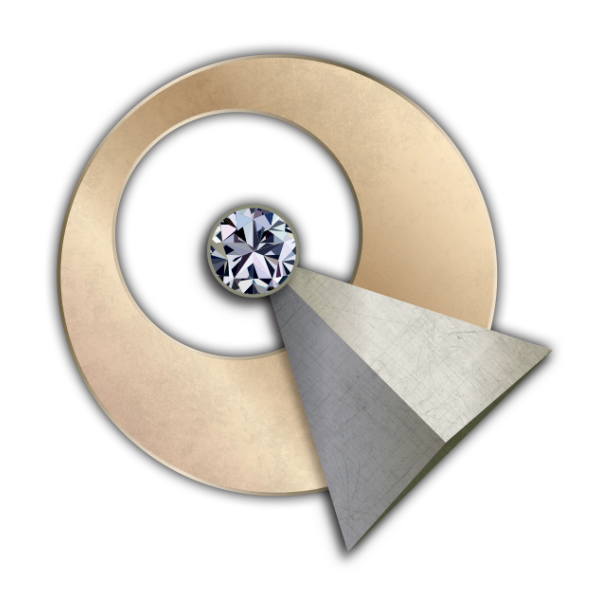
Infinite Diversity in Infinite Combinations - The spirit of Star Trek
It would be hard to have a series of articles about Science Fiction, and the portrayal of Artificial Intelligence within without talking about Star Trek.
Earlier articles looked at Star Wars and how we accept a fictional society as just and good, despite the fact that it’s built on the abject slavery of artificial life. We also looked at Asimov’s Robot Laws and how they can be the basis of ethics in AI and Robotics, but at a cost of enslaving and abusing machine intelligence. We also explored Frank Herbert’s Dune Universe and how it took AI out of the equation for the main storyline, keeping it as an ancient enemy and future threat.
When it comes to Star Trek there are so many sources of material, and I can’t cover them all, so I’ll have a recency bias and explore the latest in Star Trek, which of course are Star Trek Discovery and Star Trek: Picard.
I’ll look at it through the lens of Star Trek as an amazing show, and in particular how it is when it is at its best: helping us to understand diversity, push through our biases, and to build empathy for those that look different from us. It’s no coincidence that it was the first show to feature a diverse cast, and massively controversial to show the first interracial kiss on TV. This was against a background (in 1968) of interracial relationships being taboo, and interracial marriage being illegal.
See it here:
So, with that in mind, if any TV show can have a sympathetic, open mind towards AI and Machine Intelligence, it might be Star Trek.
Star Trek Discovery
Season 2 of Discovery is excellent, and one of my favorite shows. Its 14 episodes aired in early 2019. The prime antagonist in the show is Control, a system that evolved from a threat assessment AI that goes rogue, and plots the annihalation of all biological life. The same old cliche. It’s Terminator. It’s Dune. It’s an AI so dangerous that our heroes have to sacrifice everything they’ve known to defeat it.
It’s great drama. But it’s a reminder that the writing has gottent a little creatively bankrupt – when the Trek of the 60s tried to break out of societal tropes around interracial relationships, the Trek of the 2010s doubles down on the technophobia of the age.
What a shame, for such a well-written and produced show. Check it out for yourself on the Star Trek Discovery Season 2 Blu-Ray here
Star Trek Picard
I was crazy excited for Picard. In early 2020, I had returned from China, at the outset of the US Covid outbreak, before we had any idea what would come next. Incidentally, I was really sick, but I put it down to jetlag. I took a day off work, grabbed a hot drink and watched the first episodes of Picard.
I loved it. Was a bit put off by a Romulan with an Irish accent, but why not?
The plot: An Android, related to the character Data, an artificial sentient being, tracks down Picard in his retirement. By the end of the episode she is killed by Romulans, but leaves Picard with a clue to her existence. This leads him on an adventure where he rediscovers the Borg (an alien Cyborg race of connected, artificial machine, intelligence!), a planet full of Androids who are anti-organic, and of course the ultimate big-bad, an ancient race of synthetics that live in a parallel Universe, and when called up by synthetics, they’ll show up to destroy all organic life and let the synths survive. In between, we see flashbacks of a synthetic terrorist attack on human bases on Mars.
For example – this scene sets up the Romulan antagonists, who after seeing a vision of the destruction of organic life by synthetics, go on a holy war to destroy synthetics. Sounds a lot like Dune’s Butlerian Jihad!
It’s about as anti-technology as you can get. Similar to Discovery it leans heavily into modern technophobia in a very non-Trek way.
It’s redeeming feature: The relationship between Picard and Data, leading to Picard’s resurrection into a synthetic ‘golem’ body. Perhaps next season we’ll have a more compassionate view of synthetic life, given the titular character is now one!
Overall, despite it being beautifully written and produced TV, modern Star Trek gets an ‘F’ from me for it’s complete lack of sympathy for artificial lifeforms, reducing them to a one-dimensional antagonist, and doubling down on modern tropes, instead of pushing back as origional Trek was wont to do.
The motto was always Infinite Diversity in Infinite Combinations, a wonderful call to empathy. But I think modern Trek as forgotten this.
Super disappointing, and a definite reminder that even very well-produced TV can be shallow and repetitive. I’d love to see a show as influential as Trek begin to think out of the box once more.